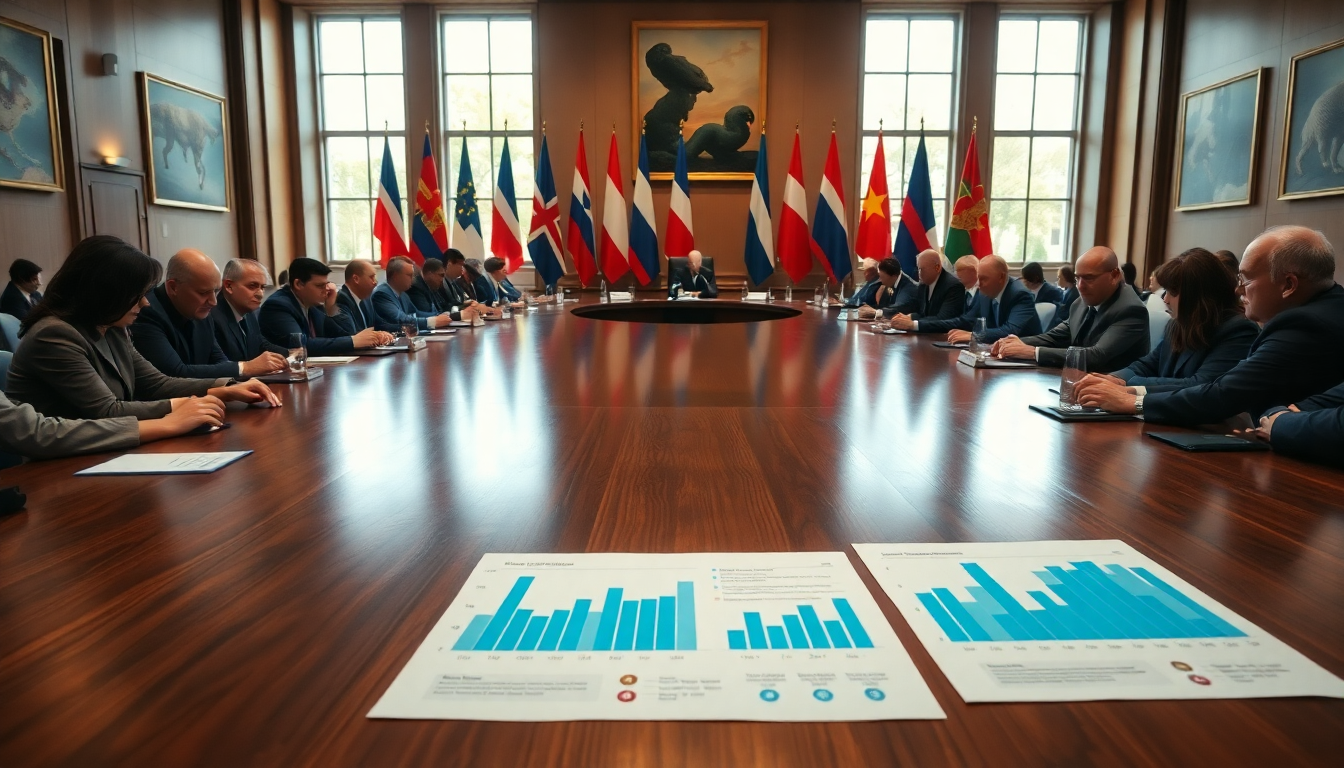Table of Contents
At a recent summit in Brussels, French President Emmanuel Macron stirred the pot by suggesting that discussions on the European Union’s next climate target should be postponed. Why does this matter? If this proposal goes through, it could have serious implications for international climate initiatives and the EU’s standing as a global climate leader. The European Commission is gearing up to present a bold plan aimed at slashing greenhouse gas emissions by a staggering 90% by 2040, but this ambitious target is already causing a stir among member states.
Current Climate Goals and France’s Position
The European Commission has been working to align the ambitious 2040 climate goal with an interim target set for 2035. While the 2035 goal isn’t legally binding, it’s a requirement for all member states under the Paris Agreement, especially with COP30 looming in Belém, Brazil. With the UN pushing for a clear deadline on the 2035 target, the Commission is eager for a rapid consensus on the 2040 objective. But here’s the catch: not everyone is on board.
Recent reports show that France is teaming up with traditional slow movers like Poland and Hungary, advocating for a separation of the two climate targets. Initially, French officials denied this strategy, but Macron later confirmed his intention to tackle the 2035 target separately and to take a more measured approach towards the 2040 goals during a post-summit press conference.
“What is required for Belém are national trajectories for 2035; we will do it,” Macron stated, emphasizing the need for a careful discussion. While he remains open to considering the 2040 objectives, he insists that rushing these conversations isn’t the way to go. He champions a democratic dialogue that includes all 27 member states, ensuring that every perspective is heard.
The Risks of Decoupling Climate Targets
Decoupling the targets could lead to a less ambitious 2035 goal, raising eyebrows about the EU’s ability to lead on climate issues just when the world needs it most—especially with the United States stepping back from the Paris Agreement. Macron is adamant that the urgency surrounding the 2040 discussions shouldn’t undermine the effectiveness of the 2035 targets.
“If we achieve it for Belém, great, but that’s not what’s expected of us. It’s primarily about the 2035 objectives,” he remarked, urging caution against overcommitting for the future. Macron stressed that any goals for 2040 must align with the EU’s competitiveness, advocating for equal treatment of renewable and nuclear energy in future climate action plans.
Moreover, he pointed out that countries need more flexibility and investment opportunities to hit their climate goals. If the European Commission can weave these essential requests into its legislative package, Macron hinted he might be more inclined to support the 2040 target.
International Reactions and Future Outlook
The debate surrounding climate objectives has sparked some serious divisions among EU leaders. Macron’s initiative has received backing from Polish President Donald Tusk, while Hungary has already shown support for keeping the two objectives separate. On the flip side, Denmark, which is set to take over the rotating presidency of the EU Council, is pushing to stick to the Commission’s timeline and finalize both objectives by September.
To bridge the gap, the Commission is proposing a 2035 target that falls between the current goal for 2030 and the ambitious 2040 objective—a 72.5% reduction in emissions compared to 1990 levels. Without a clear 2040 target, the path to achieving these goals becomes murky. A linear trajectory from 2030 to the EU’s carbon neutrality goal of 2050, a concept supported by Poland, could result in a 2035 target that’s around 66% less ambitious than expected.
France has often positioned itself as a staunch advocate for the Paris Agreement, and its push for a delay has drawn skepticism from climate activists and nations already grappling with the effects of climate change. Representatives from the Pacific Islands have voiced their concerns, urging Macron to fight for a strong 2035 target. Their warning suggests that stepping back from this ambition could signal a major retreat from the EU’s commitment to global climate leadership.
Conclusion
The ongoing discussions about climate objectives shine a light on the complexities of international climate policy within the EU. Macron’s cautious approach highlights the necessity of balancing economic and environmental priorities. As member states wade through these challenging conversations, the outcomes will undoubtedly shape the EU’s role in the global battle against climate change and its ability to maintain a leadership position in international environmental efforts. So, what do you think? Is the EU ready to step up, or is it time for a rethink?


